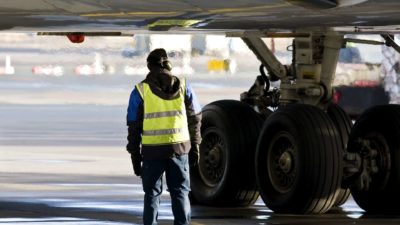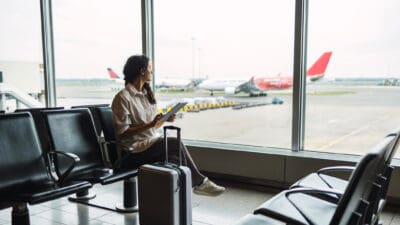With international borders well and truly open, two years of pent-up demand and a desire to escape the winter has seen droves of Aussies pack their bags and take off to warmer climates.
Two popular ASX travel shares riding this recovery are Flight Centre Travel Group Ltd (ASX: FLT) and Webjet Limited (ASX: WEB).
These companies go head to head in the Australian leisure market. But while Flight Centre has a strong presence in corporate travel, Webjet is a big player in the business-to-business (B2B) hotel accommodation space.
Fresh off an overseas trip, I'm keen to put these ASX travel shares under the spotlight to see which company might be the better buy.
The case to upgrade Flight Centre shares
For months now, Flight Centre has been the most heavily shorted share on the ASX. But it might not be all doom and gloom.
While borders were shut and revenue shrivelled up, Flight Centre acted swiftly to significantly reduce its cost base, realign and modernise its brands, and accelerate its investment in technology.
Most notably, the company cut its Australian brick-and-mortar store network in half, meaning it's now emerged from COVID a much leaner business. Importantly, the company believes it's still able to reach 95% of its customers despite these store closures. All the while, competing travel agents have shuttered up shop and exited the market for good.
With the travel environment more complex now than ever before, travellers are turning to experts – like those at Flight Centre – to navigate the complexity and provide peace of mind.
Flight Centre's corporate travel business has also been making inroads since the pandemic, growing market share organically through new big account wins and high retention. The company's FCM business won 12 of its largest 20 accounts during the pandemic. And since the first half of FY21, it's secured accounts with an annual spend of around $4.5 billion.
The case to double click on Webjet shares
Compared to Flight Centre, Webjet is a much more capital-light business since it doesn't run a network of physical stores. Nor does it employ an army of salespeople to operate these stores.
Even still, it's also emerged from COVID as a leaner, more cost-effective company. Its Webbeds 'bed bank' business has slashed costs by 31% compared to pre-pandemic levels and is on track to be 20% more cost efficient when it's back operating at scale.
What's more, Webbeds has its sights set on moving up one spot to become the number one global B2B accommodation provider. This strategy is seeing Webbeds target a greater market opportunity through channel expansion, diversifying into untapped domestic markets, and an increased presence in North America.
Webjet is also targeting significant market share growth in its online travel agency (OTA) business, which already captured more than 50% of the OTA flights market in Australia and New Zealand prior to COVID. As the structural shift to online continues to accelerate, Webjet is aiming to outperform the domestic bookings market by 1.5x, underpinned by its brand strength and unique technology.
Webjet's financial year ends on 31 March, so the ASX travel share has already handed in its FY22 results. The company's operating leverage was on full display, with revenue growing 63% in the second half compared to the first, while expenses only ticked up by 10%.
Is there turbulence ahead for ASX travel shares?
I've presented the blue-sky scenario for these ASX travel shares but it's important to be wary of the risks. After all, Flight Centre shares are attracting short interest for a reason. At the moment, 15% of Flight Centre shares are held as short positions, while Webjet's short interest stands at around 7%.
It appears the market is concerned that the travel recovery may take longer than expected, hampered by inflation and rising living costs.
At the same time, the industry is battling a lack of capacity from airlines, particularly on international routes, leading to higher airfares which could stifle demand.
As the dust settles from COVID, more travellers have been opting to venture domestically rather than overseas. This is an unwelcome trend for travel agents as they earn higher margins on international travel.
Looking out over the longer term, there are also debates over the relevance of travel agents and if video conferencing tools have changed the corporate travel landscape for good.
Which is the better ASX travel buy?
Flight Centre is a proven performer with an aligned founder at the helm and a long history of creating shareholder value.
That said, I'm attracted to the scalability of Webjet's model, its earnings potential, and the runway for organic growth ahead for its Webbeds business.








